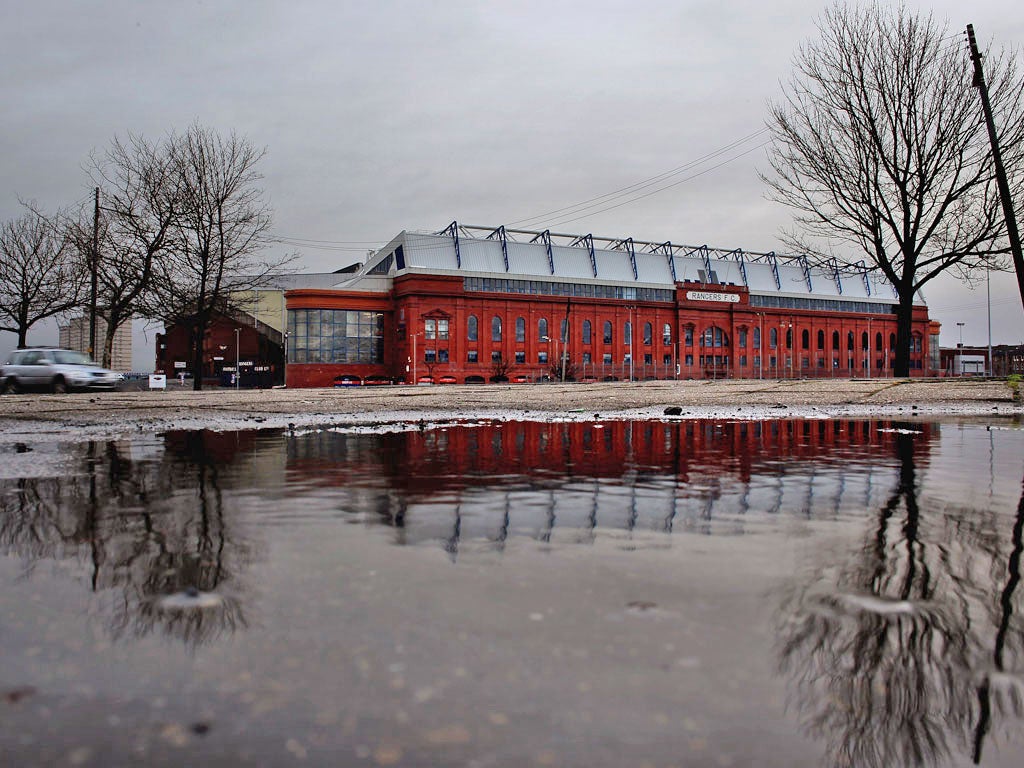Former Rangers chairman Alastair Johnston denies 'financial doping'

Former Rangers chairman Alastair Johnston has rebuffed accusations that paying players through the club's controversial tax scheme was akin to “financial doping”.
The original Rangers were consigned to liquidation in June owing between £21million and £95million to the taxpayer before the Ibrox club was relaunched by Charles Green's new company.
Rangers face the prospect of having titles stripped amid an inquiry by a Scottish Premier League-appointed commission, which continues procedural hearings today.
Johnston last night hit out at the process, claiming the probe into alleged undisclosed payments was being driven by "vested interests" in the SPL, and questioning why the Scottish Football Association had not taken action when they were furnished with information on Rangers' use of Employee Benefit Trusts (EBTs) in April 2011.
And Johnston also launched a detailed defence against those who have accused the Ibrox club of effectively cheating by cutting their wage bill through EBTs, which are the subject of an ongoing tax tribunal.
In a statement published by the Rangers Supporters Trust, Johnston said: "Our opponents maintain, illogically, that without the use of EBTs Rangers would have been unable to afford the quality of players that they fielded and thus gained an advantage over other clubs against which they competed.
"The reality of the situation is that Sir David Murray, who was intimately involved in the architecture of these efforts to organise the business in a way to mitigate taxation which is totally legitimate and acceptable under all tenets of the law, would have signed and paid for these very same players whether or not EBT schemes were in effect or not.
"The only difference being one which only has a financial consequence, i.e. it would have increased Rangers' reliance on bank debt.
"During most of the period under investigation by the upcoming SPL tribunal, he as well as his company enjoyed a very mutually productive relationship with the Bank of Scotland.
"The Rangers board, of which I was a member, consistently believed that if and when the debt reached a level where the bank became uncomfortable, Sir David as he did in 2004 when he underwrote a subscription for Rangers shares and thus eliminated much of the bank debt, would be able and willing to repeat this recovery effort.
"Whether or not he ultimately would have done so is now irrelevant, but what is clear is that 'financial doping' is not and could never be construed as describing a situation where a club extends its credit facilities with a recognised financial institution."
Johnston admitted that his successor Craig Whyte, who deliberately withheld tax payments, could be accused of "financial doping".
Johnston, who before Whyte's takeover in May last year admitted the EBT case could have left Rangers with a bill they could not pay, added: "Keep in mind, which is not always clear in the molasses of misinformation that is currently circulating, Rangers went into liquidation and suffered all the penalties and sanctions of which we are now aware, solely because of Mr Whyte's failure to pay HMRC the withholding tax that the club collected during the short term of his disgraceful proprietorship."
PA
Join our commenting forum
Join thought-provoking conversations, follow other Independent readers and see their replies
Comments